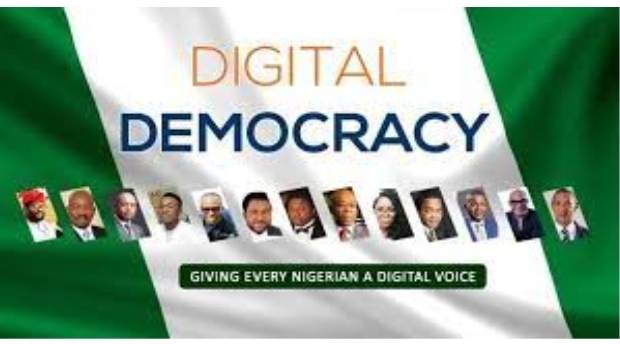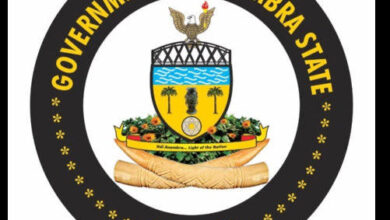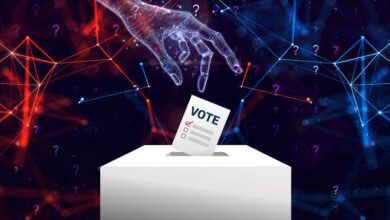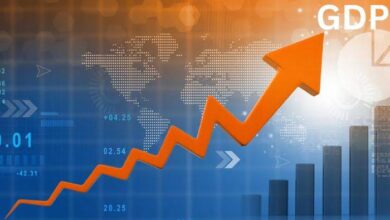
- Knowledge is power
- The Future Of Possible
- Hibs and Ross County fans on final
- Tip of the day: That man again
- Hibs and Ross County fans on final
- Spieth in danger of missing cut
By Afeez Rabiu
Nigerian and African politics is undergoing a profound transformation, shaped by the dynamic forces of the digital landscape. In recent years, the power of online platforms in influencing public opinion and electoral outcomes has become undeniable. According to recent statistics from reputable sources such as the International Institute for Democracy and Electoral Assistance (IDEA), over 40% of Africans now have access to the internet, a significant increase from a decade ago. The digital space has become a battleground for political actors seeking to sway the hearts and minds of the electorate.
The rise of social media platforms and the proliferation of fake news websites have created a complex ecosystem where political narratives are shaped, amplified, and sometimes distorted. In Nigeria alone, the number of social media users has surged to over 80 million, playing a pivotal role in shaping public discourse (Statista, 2023). This digital revolution has not only democratized information access but has also opened the floodgates for misinformation and manipulation.

It is imperative to acknowledge the groundbreaking efforts of many fact checking platforms like FactCheckAfrica, their reports and efforts so far serves as the foundation for this exploration into the nuanced world of online political manipulation.
The stakes in African elections have never been higher, with the influence of online manipulation reaching unprecedented levels. Research indicates that misinformation campaigns during elections can significantly impact voter behavior, leading to skewed outcomes that undermine the very essence of democratic processes (Pew Research Center, 2022).
Considering various occasions where viral fake news, strategically disseminated through social media channels has swayed public sentiment in favor of a particular candidate. This not only distorts the democratic process but erodes trust in the electoral system, threatening the very foundation of democratic governance.
How Political Actors Use Social Media to Influence Public Opinion
In the evolving landscape of global politics, social media has emerged as a potent tool for political actors to shape public opinion, influence perceptions, and sway electoral outcomes. This phenomenon is not confined to a single region; it reverberates globally, with ramifications particularly evident in the heart of Nigerian and African politics.
Political campaigns, both on a global scale and within Nigeria, have adeptly harnessed the power of platforms like Facebook, X, and Instagram to disseminate narratives that align with their agendas. Globally, we’ve witnessed instances where political figures have effectively utilized social media to build charismatic personas and rally support.
A poignant example comes from the 2016 United States presidential election. The strategic use of Twitter by then-candidate Donald Trump demonstrated the potential of social media as a direct communication channel, allowing political figures to bypass traditional media gatekeepers and connect directly with voters. This global precedent laid the groundwork for similar strategies to take root in local contexts, including Nigeria.
In the Nigerian political landscape, recent events have underscored the pivotal role of social media in shaping narratives. During the last election cycle, political actors leveraged platforms to disseminate targeted messages, engaging in a digital tug-of-war to influence voter sentiment. FactCheckAfrica’s insightful reports shed light on how misinformation propagated through social media became a significant player in molding public perception.
The 2023 Nigeria General Elections
During Nigeria’s 2023 general elections, social media played a decisive role in shaping the discourse. Fact Check Africa during her Election situation report program held in Kwara state during the elections, highlighted instances where misinformation campaigns sought to tarnish the reputation of candidates, manipulate voter opinions, and even spread false narratives about the electoral process itself. The repercussions were palpable, affecting public trust and influencing voter decisions.
FactCheckAfrica’s reports illuminated the tactics employed by political actors to amplify certain messages, utilizing fake accounts, memes, and strategically timed posts. This report serves as a microcosm, illustrating the broader trend of social media manipulation during the general elections.
AI and Deepfakes In Politics
Artificial Intelligence (AI) emerges as a powerful partner, often veering into the shadows where manipulation thrives. AI isn’t merely a tool but a puppeteer orchestrating narratives and molding public sentiment. Over the years it has become evident that AI is a double-edged sword.

The algorithms behind social media platforms, finely tuned to user preferences, create echo chambers that reinforce existing beliefs. During the 2023 Nigerian general elections, political actors exploited these algorithms, tailoring messages to specific demographics. The resonance of these messages, carefully curated by AI, had a profound impact on shaping voter perceptions.
Automated bots flooded social media with misleading information, trending hashtags, and even fabricated stories. These bots, powered by AI, operated in a synchronized symphony to amplify certain political narratives while drowning out opposing voices.
Beyond its technical prowess, the ethical implications of AI in politics demand our attention. The manipulation of public opinion through personalized content raises questions about the democratic process. The fine line between targeted campaigning and manipulation blurs, challenging the very essence of free and fair elections.
During the 2023 Nigerian elections, AI-driven micro-targeting techniques were employed to craft messages tailored to individual voters some of which were deep fake voice notes and Ai generated contents. This level of personalization, while strategically effective, poses ethical concerns. The ethical debate intensifies when considering the opaque nature of these algorithms, leaving voters in the dark about the forces shaping their political landscape.
As AI pulls the strings behind the scenes, the rise of deepfake technology adds a layer of complexity, introducing a new dimension of uncertainty and manipulation into electoral processes.
One notable case involved a fabricated audio depicting a prominent candidate making incendiary remarks. Shared virally on social media, the deep fake audio sparked outrage and altered the trajectory of public discourse. The origins of this audio remained obscured until investigative efforts unveiled the sophisticated use of AI to create and disseminate the deceptive content.

These cases underscore the potency of deepfakes in not just spreading misinformation but also in directly influencing voter sentiments.
The threat deep fakes pose to the integrity of electoral processes is profound. They blur the line between reality and fiction, creating a landscape where truth becomes elusive. As we reflect on the 2023 Nigerian elections, it becomes evident that the potential consequences of deepfake manipulation extend far beyond the immediate political arena.
The erosion of trust in political discourse is a direct consequence of deepfake technology. When voters can no longer discern between authentic and manipulated content, the very foundation of a democratic society is shaken. Safeguarding the electoral process necessitates a proactive approach to identifying and mitigating the threats posed by deep fakes.
To fortify against these threats, comprehensive legislation, technological countermeasures, and robust media literacy initiatives must be employed. The 2023 elections stand as a stark reminder that the battle for truth in the digital age is one that requires constant vigilance and adaptive strategies.






Hi, this is a comment.
To get started with moderating, editing, and deleting comments, please visit the Comments screen in the dashboard.